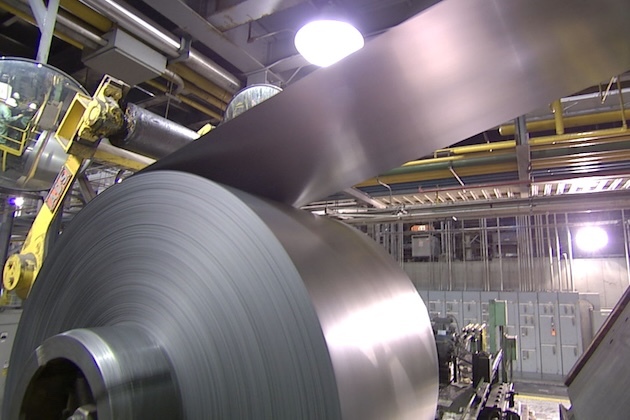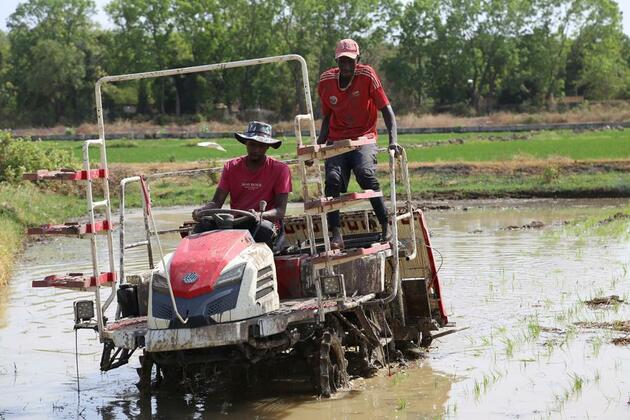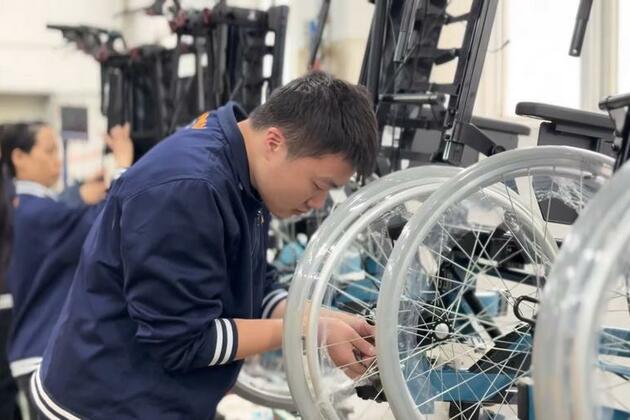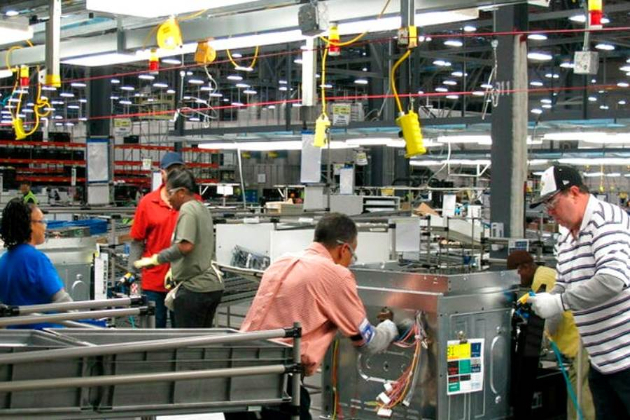Could 'virtual nurses' be the answer to aged care staffing woes? Dream on
The Conversation
05 Aug 2022, 12:08 GMT+10
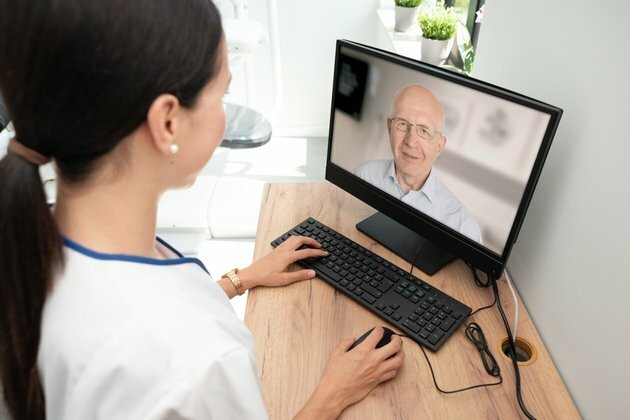
Former Health Department Chief Martin Bowles has reportedly proposed "virtual nurses" could help address the shortage of nurses in aged care.
This might involve remote, possibly artificial intelligence-assisted, virtual care, rather than physical nurse presence, to assist nursing homes to meet new legislative requirements to have a registered nurse present 24/7.
There are clear opportunities for technological innovations to improve the care, health, and wellbeing of older people. However, substitution of face-to-face nursing and human interaction with remote care is not the answer.
This seriously risks perpetuating the status quo where many older people suffer from isolation, neglect and lack of human engagement.
Eroding requirements to properly staff nursing homes with registered nurses could make it even harder to attract and keep staff.
Read more: Our ailing aged care system shows you can't skimp on nursing care
What are 'virtual nurses'?
"Robot nurses" already exist in some contexts, helping to move patients, take vital signs (such as blood pressure), carry medicines and laundry, and even engage with patients.
However, "virtual nursing" likely refers to more familiar technology where a real nurse provides a limited range of care via telehealth (by phone and/or video).
While some might appreciate when robots can assist with certain tasks, much of what nurses do cannot and should not be performed remotely (or by robots).
Indeed, older people, their loved ones, and staff are calling out for more physically present staff and more time to care and interact, not virtual interfaces and remote consultations.
The benefits of technology in health care are unquestionable and many innovations have improved care for older people. Artificial intelligence shows promise in helping prevent and detect falls, and socially assistive robots such as PARO (a baby harp seal), have been shown to reduce stress, anxiety and antipsychotic use in people with dementia.
Technology should not, however, be introduced at the expense of care quality or supporting and sustaining a suitably sized and skilled aged care workforce. We still need to adequately staff nursing homes to provide safe, dignified care.
Read more: Before replacing a carer with a robot, we need to assess the pros and cons
We need adequate staffing
The Royal Commission into Aged Care Quality and Safety heard a vast quantity of evidence regarding insufficient staffing, particularly of nurses who have the education and skills to deliver high quality clinical and personal care.
This expertise is why nurses cannot be replaced with remote care, and why the Commission recommended 24/7 registered nurse presence; this has now been legislated.
More than half of Australian aged care residents live in nursing homes with unacceptably low levels of staffing and around 20% do not have a registered nurse onsite overnight.
Insufficient staffing results in workers not having time to interact with residents meaningfully and compassionately and also contributes to avoidable hospitalisations, worse quality care and outcomes, and poor working conditions for staff.
As social beings, human interaction is fundamental to health, wellbeing, and best practice care. This is particularly true for older people in nursing homes who are less able to engage with others and is especially vital for those living with mobility challenges and dementia.
Partly due to nurse low staffing levels, loneliness, isolation and mental ill health are widespread in aged care and have become more common due to pandemic related restrictions on visitors and staff.
Read more: Working conditions in aged care homes are awful, largely because the work is done by women
Care experiences are shaped by human interaction and contact; the touch of a hand, a smile, eye contact, and being able to take the time to genuinely listen.
These actions are central to how nurses and other staff build effective and meaningful relationships with residents.
Seeking to replace human contact with virtual interfaces seems both inconsistent with the Royal Commission's findings and possibly cruel.
Personal interactions also help staff, as the Royal Commission highlighted:
Rather than circumventing reforms to ensure more nurses provide face-to-face care in nursing homes, we need to address the range of challenges contributing to widespread and tenacious workforce shortages.
There are clear challenges for growing and retaining a sufficiently sized and skilled aged care workforce. However, government reforms, such as better pay, mandated care time, and greater accountability and transparency regarding the use of funds all work together to make aged care a feasible and attractive sector to work in.
This is one where staff are supported to provide the high quality and safe aged care all Australians deserve and where older people receive best practice, human care.
Author: Micah DJ Peters - Senior Research Fellow / Director - Australian Nursing and Midwifery Federation (ANMF) National Policy Research Unit (Federal Office), University of South Australia 
 Share
Share
 Tweet
Tweet
 Share
Share
 Flip
Flip
 Email
Email
Watch latest videos
Subscribe and Follow
Get a daily dose of Japan Herald news through our daily email, its complimentary and keeps you fully up to date with world and business news as well.
News RELEASES
Publish news of your business, community or sports group, personnel appointments, major event and more by submitting a news release to Japan Herald.
More InformationAsia Pacific
SectionUS seeks global support to block China’s access to American chips
WASHINGTON, D.C.: Commerce Secretary Howard Lutnick said the Trump administration is asking companies and foreign governments to help...
Trump seeks delay in US Steel-Nippon legal fight, talks ongoing
WASHINGTON, D.C.: The Trump administration is seeking a delay in the legal battle between U.S. Steel and Nippon Steel over their blocked...
FAA to propose new rules for expanding drone deliveries
SEATTLE/WASHINGTON D.C.: U.S. Transportation Secretary Sean Duffy said last week that the Federal Aviation Administration (FAA) is...
(Hello Africa) Chinese rice planting technology boosts agricultural development in The Gambia
Local farmers work for the China-Gambia agricultural technology cooperation project in Central River Division, Gambia, on March 13,...
Global Chefs embrace Japanese ingredients in Kyoto competition
Kyoto [Japan], March 22 (ANI): The Japan Culinary Art Award was recently held in Kyoto to honour the world's top chefs in Japanese...
Foreign-funded enterprises increase investment, expand production in east China
A worker assembles wheelchairs at the workshop of Alu Rehab (Xiamen) Co., Ltd. in Xiamen, east China's Fujian Province, Feb. 26, 2025....
Business
SectionAir France unveils luxury first-class suite to lure elite travelers
PARIS, France: Air France is making a bold bet on luxury travel with the launch of an upgraded first-class suite, aiming to attract...
US homebuilding, manufacturing jump in February, but tariff costs loom
WASHINGTON, D.C.: U.S. home construction and manufacturing activity surged in February, but rising costs from tariffs and economic...
U.S. stock markets end marginally higher at week's-end
NEW YORK, New York - Uncertainty continues to plague investors on Wall Street with Friday's trading being volatile and weak. The major...
US factory output rises in February, led by auto rebound
WASHINGTON, D.C.: U.S. factories ramped up production in February, with a sharp rebound in motor vehicle output helping to drive manufacturing...
Israeli government asks Musk to submit tender on vehicle-provisioning
Elon Musk's Teslas' are in the running to take over the transport of Israel's government officials. Musk's company, Tesla Inc., has...
Trump seeks delay in US Steel-Nippon legal fight, talks ongoing
WASHINGTON, D.C.: The Trump administration is seeking a delay in the legal battle between U.S. Steel and Nippon Steel over their blocked...


